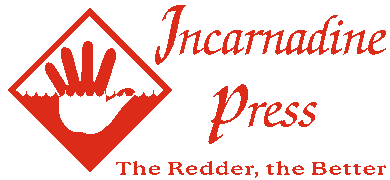PEOPLE! IT’S PEOPLE!
D&D4 delivers most strongly on matters of Social Agenda: It gets people to my house to play, week after week. This is the defining trait that WotC’s banking on, and it works. People who play become people who buy. Heck, it’s already sold two additional copies of the Player’s Handbook and a copy of the Adventurer’s Vault in my group. But how does D&D4 deliver on social agenda better than other games?
1. Brand Recognition. Our original invitation said something like “D&D has a new edition. We don’t know how it works, but want you to come help us find out!” I didn’t need to go into “I’ve got this new fantasy RPG that uses an innovative system of powers to allow us to portray heroes defending the world from myriad evil foes!” I didn’t need to sell the game, which is very good. I’ve always been a poor salesman.
What I can steal for my own game design: Not much. While you can possibly fight city hall, you can’t outmarket the name of the game that started your own hobby. I’ve seen what Luke and Fred and Ron go through to keep the names of their “big name” indie games in the gamer consciousness, and how far that awareness permeates. Marketing will always be a hurdle for me, it just doesn’t suit my skills and personality.
2. Niche Protection. Every character class has its own area where it excels like nobody else. That means that every player at the table has concrete tasks where they can help in the team better than anybody else. Teamwork is built into the game engine. Playing a fighter, my guy is better at “You want to fight? Fight me!” than anybody else. It’s my job to get in the face of the big bad guy and try to force him to direct his attacks at my large hit point total, rather than the smaller HP pools of the rest of the group. My fellow players cheer me on when I do exactly that. Just like we cheer on Michele’s kobold wizard when her burning sphere takes out 4 minions in a single turn.
What I can steal for my own game design: Being uniquely effective is important. In real social groups, each individual brings something special–their unique skills, history, personality, and perspective–to the service of the team. My game designs haven’t really featured much in the way of niche protection. Characters in my games tend to be mechanically identical. It makes for more elegant systems, but the side effect that I’m just now realizing is that it pushes the job of character differentiation onto the player’s creative shoulders. And while that’s not a bad thing at all–you want to leave room for people to bring themselves to the game–there’s benefits on the other side as well. Using the system to emphasize why your seat is important is no different than using the system to emphasize why “sacrifice for the greater good” is important. I think this insight is definitely going into By The Stars.
I’ve got more to say about D&D4’s Social Agenda, but I’ve got to get to work.

Niche protection has been an oddball since I think it’s one of the things that’s been tremendously successful in play, but it has been a barrier to adoption for people who expect their characters to be able to do everything. It’s a problem that corrects itself with time, but it’s been interesting to deal with.
Niche protection has been an oddball since I think it’s one of the things that’s been tremendously successful in play, but it has been a barrier to adoption for people who expect their characters to be able to do everything. It’s a problem that corrects itself with time, but it’s been interesting to deal with.